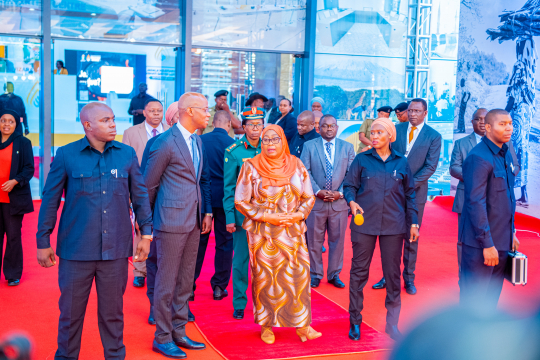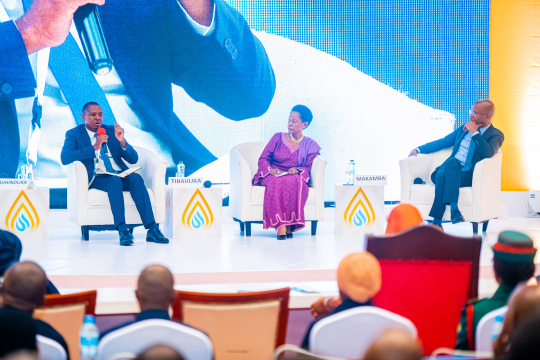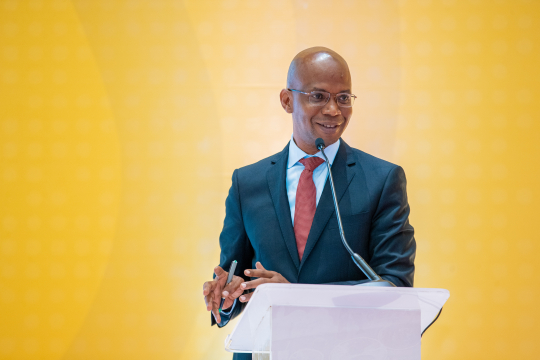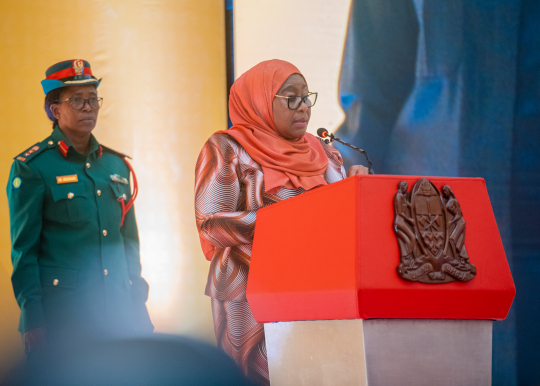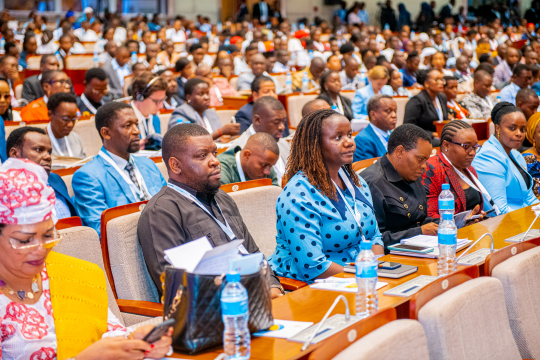Over 33,000 Tanzanians die annually from using firewood for cooking. Climate change, deforestation, and loss of biodiversity are other effects of the burning of firewood. The Tanzanian Ministry of Energy arranged a national conference to address this problem. EfD Tanzania has played an instrumental role in this process.
Over 3,000 people participated in the Tanzania Clean Cooking Conference on November 1-2. The participation of the President of Tanzania, Samia Suluhu Hassan, signaled the importance of the issue. She commissioned during this event, among others, the authorities to form a national task force that will make a roadmap for promoting the use of clean energy for cooking.
Biomass accounts for 90 % of energy
The conference brought together stakeholders from all relevant sectors: government and political leaders, civil society organizations, development partners, financial institutions, researchers, scientists, cooking technology companies, LPG suppliers and distributors, NGOs, and others.
According to statistics presented at the conference, biomass accounts for almost 90 percent of the energy consumed by households in Tanzania. The conference aimed at finding strategies for achieving affordable, clean, and reliable cooking solutions.
Women and children worst affected
In addition to the environmental effects, the burning of charcoal or firewood is among the main causes of respiratory illnesses and deaths in Tanzania. Women and children are worst affected by air pollution caused by burning biomass. There is also a social aspect: women spend a lot of time collecting firewood, time that could be used to do paid work instead.
EfD Researcher Remidius Ruhinduka, lecturer at the University of Dar es Salaam, got the honor to participate in both plenary sessions (one per day). On the first day, he was part of the panel, and on the second day, moderator.
“The reason I got to do this, is the comprehensive work on this issue that we have undertaken over the years at EfD Tanzania and with our colleagues in the network,” says Remidius Ruhinduka.
One example is the Country Environment Analysis (CEA) that EfD Tanzania undertook at the request of the Vice President Office-Environment under the leadership of January Makamba, currently Tanzania’s Minister of Energy. After the CEA stocktaking, EfD Tanzania also provided a report on the use of charcoal.
EfD Tanzania has produced an evaluation study on bioethanol in cooperation with the private sector, and a study on Liquid Petroleum Gas (LPG). There is also an ongoing clean cooking project in Simiyu where EfD Tanzania in collaboration with SETI evaluates a large-scale distribution program of improved cookstoves.
Yet another example is EfD’s Inclusive Green Economy in Practice program, where civil servants in five East African countries, including Tanzania, get training on inclusive green economy policies. This year, two of the participants from Tanzania, so-called IGE Fellows, Victor Mkama and Joyce Msangi, who work at the Ministry of Energy were also active in organizing this conference.
Key decisions on actions were made
Three important key decisions were made by President Samia Suluhu Hassan during the conference.
1. She ordered a formulation of a National Taskforce with members from government ministries, the private sector, academia, NGOs, and development partners to make a comprehensive national roadmap and strategy for a fast-track transition to clean cooking in Tanzania. The goal is that at least 70% of Tanzanians will use clean cooking technologies by 2032.
2. The government shall set aside a Clean Cook Fund with resources earmarked for research, innovations, and various efforts in support of the clean cooking transition in Tanzania. The implementation of this will be worked upon within the budget preparation phase, probably with input from the national task force.
3. The government ensures that all government institutions serving at least 300 persons, for instance, schools, hospitals, and prisons will switch to cleaner cooking technologies by the year 2024. A one-year grace period has been given to ensure that all needed preparations are put in place to allow a smooth and sustainable transition.
“Until now, many innovations and initiatives for concrete action on clean cooking transition initiatives have actually come from the private sector,” says Remidius Ruhinduka.
Will influence policy agenda
He is, however, convinced that all stakeholders, including the government, will now work together to achieve changes.
“We have now an excellent research-to-policy platform. I am glad that our research for the past years in Tanzania is finally getting to help shape and influence the national policy agenda. The clean energy researchers and all other stakeholders are looking forward to continuing to work closely with the government to support these wonderful advancements,” he says.
By: Petra Hansson
